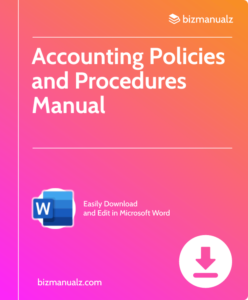How to Record The Disposal of Assets

Recording the disposal of assets is very important for any organization. It helps keep accurate records and meet accounting standards. This article will help you record disposals efficiently. How to record the disposal of assets.
Understanding the Disposal of Assets
The understanding of asset disposal involves various steps and considerations. To keep accurate records, it’s essential to stick to proper guidelines.
Firstly, get all relevant info about the asset. This includes asset acquisition date, cost, depreciation, and expenses. This makes recording easier. Next, decide how to dispose of the asset. You can choose to sell it, scrap it, or transfer it. Each method has a different accounting treatment, so be sure to understand the implications.
Now, create journal entries in your accounting system. Debit the depreciation account and credit the asset account for its original cost. If cash is received from selling, debit cash and credit sales revenue. If the asset is sold at a loss, record a loss instead of sales revenue. This shows the decrease in value from its original cost.
Finally, update your fixed asset register. This ensures records are accurate and helps with making decisions about replacements and investments.
Key points to remember include:
- Identify assets.
- Work out their fair market value.
- Pick the appropriate disposal method.
- Create detailed records with date, method, and costs.
In addition, consider factors such as age, condition, and usefulness when selecting assets for disposal. Moreover, research or consult experts for accurate valuation.
To make asset disposal recording more effective, consider these:
- Keep clear, organized records. This way, you can easily track and access info when needed.
- Abide by accounting standards. This ensures consistency and transparency in reporting.
- Do regular audits. This helps spot discrepancies or errors quickly.
By following these tips, not only is record-keeping made easier, but regulations are also complied with and accountability is enhanced. Successful management of asset disposal leads to efficient resource allocation and overall financial stability in businesses.
Importance of Recording Assets Disposal
Recording asset disposal is a must for businesses. It involves documenting the sale, retirement, or donation of assets in an ordered way. Neglecting this can cause inaccurate financial statements and possible legal problems.
Here’s why it’s important:
- Recording helps with efficient asset management, tracking, and utilization.
- Accurate financial statements help investors and creditors make informed decisions.
- It is also necessary to comply with accounting standards, or else there may be penalties.
What’s more, capturing important info like the date of disposal, sales price, and reason for disposal can give valuable insights. To do this, implement procedures and controls, like assigning personnel and software to simplify the recording process.
In conclusion, neglect recording asset disposals at your own risk! Accurate records are essential for business success.
Step-by-Step Guide on Recording  Disposal
Disposal
Recording asset disposals is key in financial management. Follow this guide to do it right!
- Gather info: Get all relevant info like date of disposal, buyer/recipient, selling price, and expenses.
- Create journal entry: Debit accumulated depreciation and other related expenses. Credit net book value and any gains/losses.
- Update asset register: Remove disposed asset and adjust book value, depreciation, and useful life.
- Document: Store invoices, agreements, receipts, etc. for reference or audit.
- Analyze/Review: Review disposals to identify trends and inform decisions.
- Control System: Put in a system with segregation of duties and reconciliations for accuracy.
Common Mistakes to Avoid When Recording Disposal of Assets
When it comes to disposing of assets, there are various blunders to dodge. By being aware of these missteps, businesses can guarantee accurate and open accounting practices. Here are some key points:
- Forget to update the asset register: A typical error is forgetting to update the asset register post-disposal. This can lead to discrepancies in financial records and make it hard to track the value of remaining assets accurately.
- Misclassify disposal transactions: Another mistake is incorrectly classifying disposal transactions. It is vital to use the right accounting approach when recording asset disposals, such as classifying them as sales or write-offs, depending on the situation.
- No supporting documents: Omitting to keep proper supporting documents for disposal transactions is another frequent misstep. This can include sales contracts, lease agreements, or any other pertinent paperwork that confirms the disposal and guarantees transparency in financial reporting.
- Ignore tax implications: Neglecting to consider tax implications when disposing of assets can be costly. Different methods of disposal may have different tax implications, so it’s essential to consult with a tax professional and comprehend these implications beforehand.
- Poor record-keeping: Lastly, inadequate record-keeping practices can lead to mistakes and inconsistencies when recording asset disposals. It’s essential to maintain organized records that clearly document each step of the disposal process, from initial decision-making to final transaction details.
Besides, businesses must note that certain types of assets, like vehicles or real estate properties, have unique details. These specifics require careful thought and adherence to particular accounting regulations governing their disposals.
Pro Tip: When recording the disposal of high-value or specialized assets, seeking professional help can guarantee compliance with applicable laws and regulations while also maximizing financial advantages.
Disposal of Assets
Recordkeeping is a must when it comes to asset disposal. Accurate and complete documentation will ensure transparency in financial reporting and regulatory compliance. Organizations should follow a system to track, record, and report asset disposal.
Gather all related information on the asset being disposed. This includes date of disposal, reason, and costs or income. Supporting evidence such as invoices, receipts, and contracts should also be documented.
Utilizing accounting software or a fixed asset management system helps to track and record the disposal. The system should fit the organization’s needs, with customizable fields and reporting capabilities.
When recording the disposal, adhere to proper accounting practices. Classify the asset type (tangible or intangible) and adjust accounts. It is recommended to consult an accountant or financial advisor for guidance.
Finally, “adequate documentation must accompany each disposal transaction to support their validity.”

Q: What does it mean to record the disposal of assets?
A: Recording the disposal of assets refers to the process of documenting and updating the company’s financial records to reflect the removal or sale of assets from its books.
Q: Why is it important to record asset disposals?
A: Recording asset disposals accurately is crucial for maintaining transparent and accurate financial statements. It helps in determining the correct value of remaining assets, calculating depreciation, and complying with accounting standards.
Q: How should I record the disposal of an asset?
A: To record the disposal of an asset, you should create a journal entry that debits the accumulated depreciation account and credits the asset’s original cost account. Additionally, you may need to record any cash received or loss incurred from the sale.
Q: What supporting documents are needed to record asset disposals?
A: Supporting documents may include a disposal authorization form, sales invoices, bills of sale, or any other relevant documentation proving the transfer or sale of the asset. These documents will help substantiate the disposal entry made in the financial records.
Q: Are there any tax implications associated with disposing of assets?
A: Yes, there can be tax implications when disposing of assets. Depending on the jurisdiction and applicable tax laws, you may need to report the disposal on your tax return and potentially recognize a gain or loss. It is advisable to consult a tax professional for specific guidance.
Q: How long should I retain records of asset disposals?
A: It is generally recommended to retain records of asset disposals for a minimum of seven years. This period ensures compliance with auditing requirements, tax filings, and potential future inquiries or investigations.
















Leave a Reply